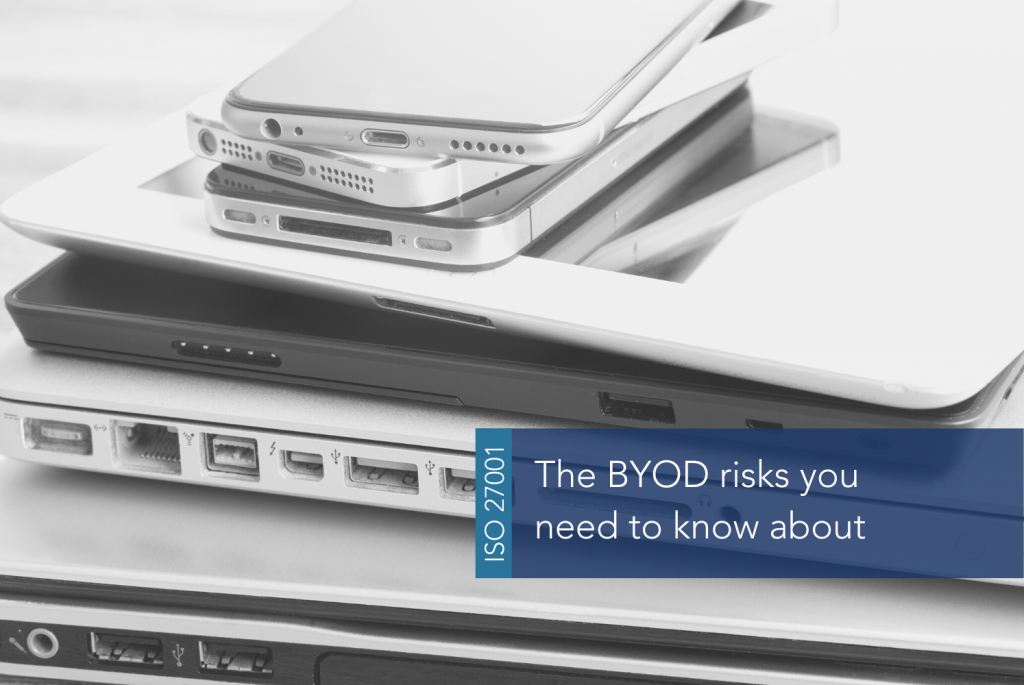
The BYOD risks you need to know about
March 20th, 2023 By AmywrightIn an increasingly mobile work environment, BYOD (bring your own device) policies are becoming a popular choice for many businesses. However, while allowing your staff to bring their own devices to work can have many benefits, there are BYOD security risks that your business needs to be aware of. These are the 5 risks to consider when implementing a BYOD policy and how to mitigate them from occurring.
1. The loss of theft or a device
Even the most careful and trustworthy staff are subject to losing or getting their device stolen. Stolen laptops and phones can easily be opened by taking them to unofficial shops, this can leave your company’s data at risk of falling into the wrong hands.
How to prevent: installing tracking systems in your staff’s devices can lead to a much speedier recovery of the item in cases where they have simply misplaced the device. In cases where the device has been stolen, having pre-installed mobile data management solutions that can wipe the contents of the device will prevent any loss of sensitive data.
Note: if you are installing a tracking system in your employees devices they must be aware of this.
2. Using devices for both personal and business use
However strict you set out your BYOD guidelines, you can’t fully prevent your employees from using their device for personal use. Shopping online on a compromised website or connecting the public WiFi in a common area present risks to the data on that device being compromised.
How to prevent: make it a requirement that employees access certain services via a VPN (secured network). This will mitigate the risks of data breaches even if your employees are accessing WiFi in a cafe or concert hall.
3. Malware infecting the device
Most people who are carrying a smartphone infected with malware are unaware that there is any problem at all. We are more than happy to tick the ‘I have read the terms and conditions’ box when we haven’t even so much as clicked the link to open the document. Many apps require certain permissions before we can continue and more often than not, we are happy to oblige. Malicious software can encrypt, steal, or delete your data, so it is important that you prevent it from infecting your device.
How to prevent: keeping your mobile operating system up-to-date is one way to avoid malware infecting your device. Be wary of domain names that end in something other than .com, .co.uk, .org, or .edu and these can be a red flag or suspicious website. You should encourage staff to download an anti-malware program that will run a scan and remove any malware that it finds.
4. Cloud-based storage
Cloud services are becoming an increasingly popular method of storage for many organizations. However, their reason for popularity is that many users can access a range of documents anywhere, but this also presents a major security threat. BYOD programs can leave way for hackers to penetrate insecure cloud storage systems and access sensitive data.
How to prevent: implement authentication controls to put stricter regulations on user access. You can also deploy client-side encryption gateways to mitigate the risk of sensitive information reaching an insecure cloud.
5. Poor policies
Not implementing a BYOD approach is a risky game to play. If your business is required to comply with certain regulatory requirements such as PCI, you might be fined if you don’t have an effective BYOD policy in place.
Solution: make sure your employees sign a written policy, you can find templates online that you can adapt to your company. You should make sure you have included the following within your policy:
- Use of a VPN
- Device location tracking
- Network connectivity
- Company owned resources that they are and aren’t allowed to access from the device
- In what circumstances the device may be wiped of all information
Don’t let security risks scare you from implementing a BYOD program. If prepared and with plans in place to mitigate for any breach, a BYOD scheme is a great way to help your business to grow.
You can align your BYOD security policies with controls outlined in the ISO 27001 standard. This will ensure your data is as secure as possible and leave you with confidence in your data security system.
I’m interested in ISO 27001
You can arrange a free consultation with one of our knowledgeable advisors if ISO 27001 interests you. We work to make the process as simple as possible by providing a set charge and flexible approach to achieving ISO certification.
Do you already have ISO 27001? You can become trained to conduct internal audits as an ISO 27001 internal auditor. We offer ISO 27001 internal auditor training courses for those interested.

Contact Us
For a free Quotation or On-Site presentation by an ISO Specialist, contact us today!
IMSM Canada Ltd
The Exchange Tower, PO Box 427
130 King Street West Suite 1900
Toronto, M5X 1E3